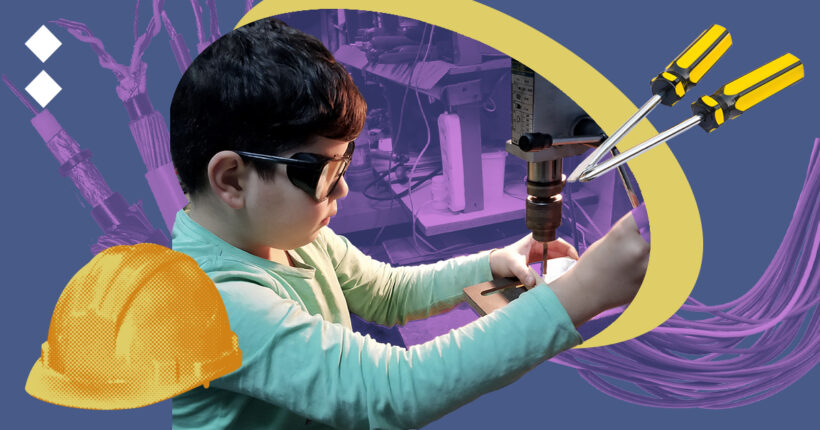
What is the problem?
Having become direct witnesses of how Russia destroys and wipes entire cities and villages off the face of the earth, Ukrainian children today strive to be active participants in the reconstruction of Ukraine. Surveys show that Ukraine's youth are ready to use all their talents and energy to help the country mutilated by the enemy rebuild and become better.
The flagships of the post-war reconstruction will be people from engineering professions. Unfortunately, despite the desire to be helpful and create the future of Ukraine, most students do not even consider the opportunity to become part of the engineering community because they believe that they do not have the appropriate abilities.
What is the solution?
In short, the solution is implementing and developing STEM education in schools. This stream of education, combining science, technology, engineering, and mathematics, will not only help shape a new generation of recovery professionals but also create an educational base that will play a key role in meeting the challenges facing Ukraine.
The all-Ukrainian project Engineering Week, which has been implemented by the organization Pro.Pro.Lab since 2020 has helped to popularize engineering thinking among Ukrainian children, help teachers immerse students in the world of exact sciences, and allow schoolchildren to try technologies and inventions. It is held jointly with the NGO Maker Hub as part of the TOLOCAR program, funded by the German Federal Government and implemented by the German HIWW Institute with the support of GIZ Ukraine.
Як це працює?
STEM weeks from Pro.Pro.Lab were imitiated in 2020. At that time, more than two thousand schools participated — 278,280 students and 8,383 teachers. Due to the beginning of Russia's large-scale invasion, Pro.Pro.Lab was forced to cancel the Engineering Week, focusing on the development of another project — Plan.DIY — an educational program for students of grades 8 to 11 and teachers who want to participate in the reconstruction of Ukraine. Rubryka recently reported about this initiative.
However, educators did not forget about Engineering Week and resumed the project in 2024. It was expected that there would be about 700 schools ready to hold the Engineering Week. Instead, the team received almost 3.5 thousand registrations. This year, Engineering Week takes place from January 15 to February 11 and unites 1,892 educational institutions in Ukraine and another six abroad.
Solve problems and create opportunities
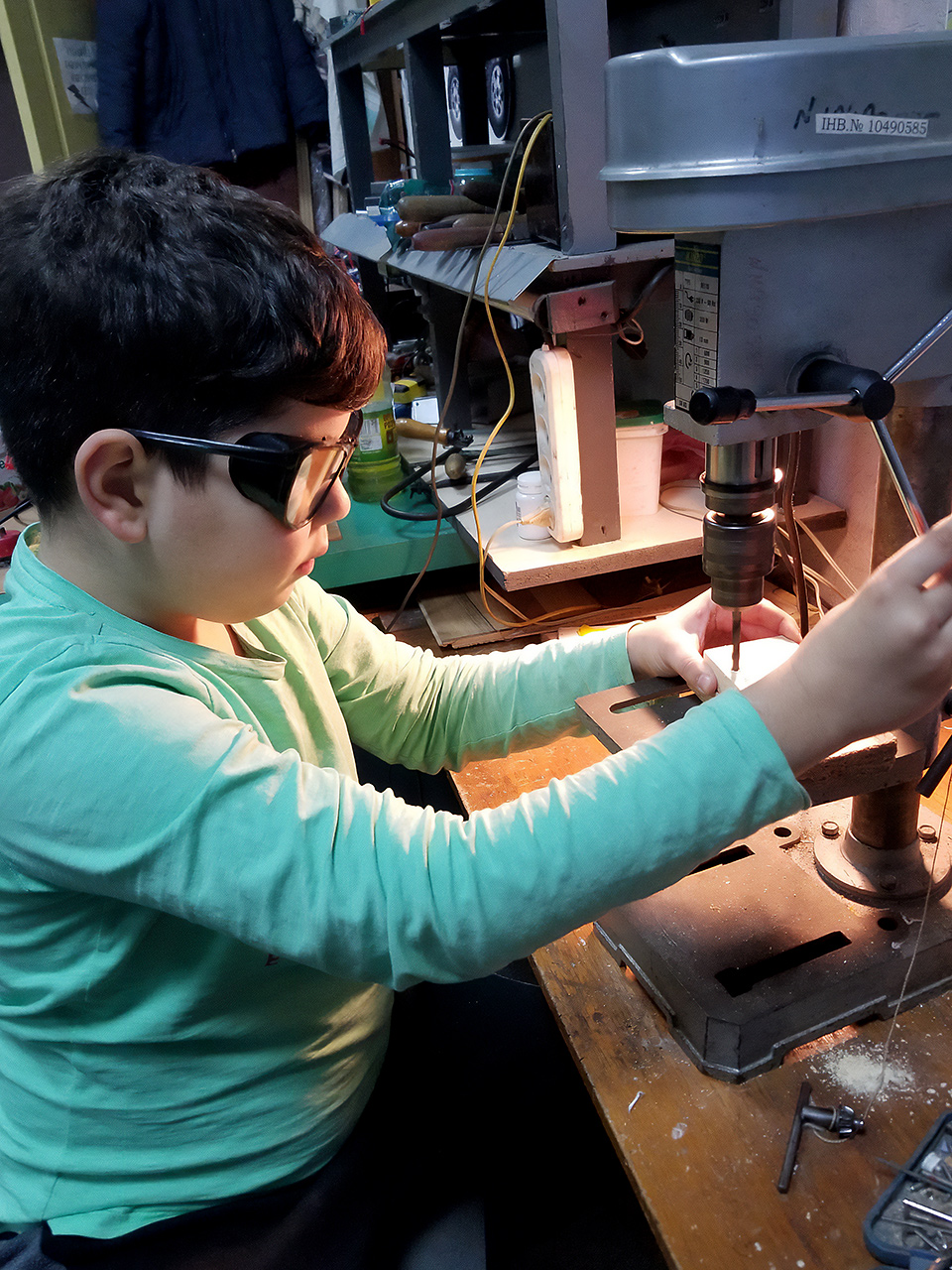
After each, "Dad, I counted, and this is what happened!" and "Mom, look how I did it!" a future invention may be hiding.
Ukrainian children need engineering more than ever, believes Olena Shulha, the Engineering Week project coordinator. After all, engineers are people who solve problems and create opportunities.
There is a great need to create opportunities, which is felt even in those regions where the proximity to hostilities significantly worsens the conditions for training. Shulha gives the numbers and geography of this year's Engineering Week participants:
- 77 schools from the Donetsk region;
- 86 from the Zaporizhzhia region;
- 7 from the Luhansk region;
- 70 schools from the Kharkiv region;
- 30 from the Kherson region.
"If a few years ago we talked more often about introducing students to engineering as a field with which they can connect their professional life, now, precisely in Ukraine, we are all engineers a little bit every day," Shulha smiles. "We repair homes ourselves after missiles hit them, collect and purify water, and decide which appliances should and shouldn't be turned on simultaneously so as not to overload the system. Children do the same. Confidence in the ability to find a solution to a problem adds freedom and strength to work in difficult times."
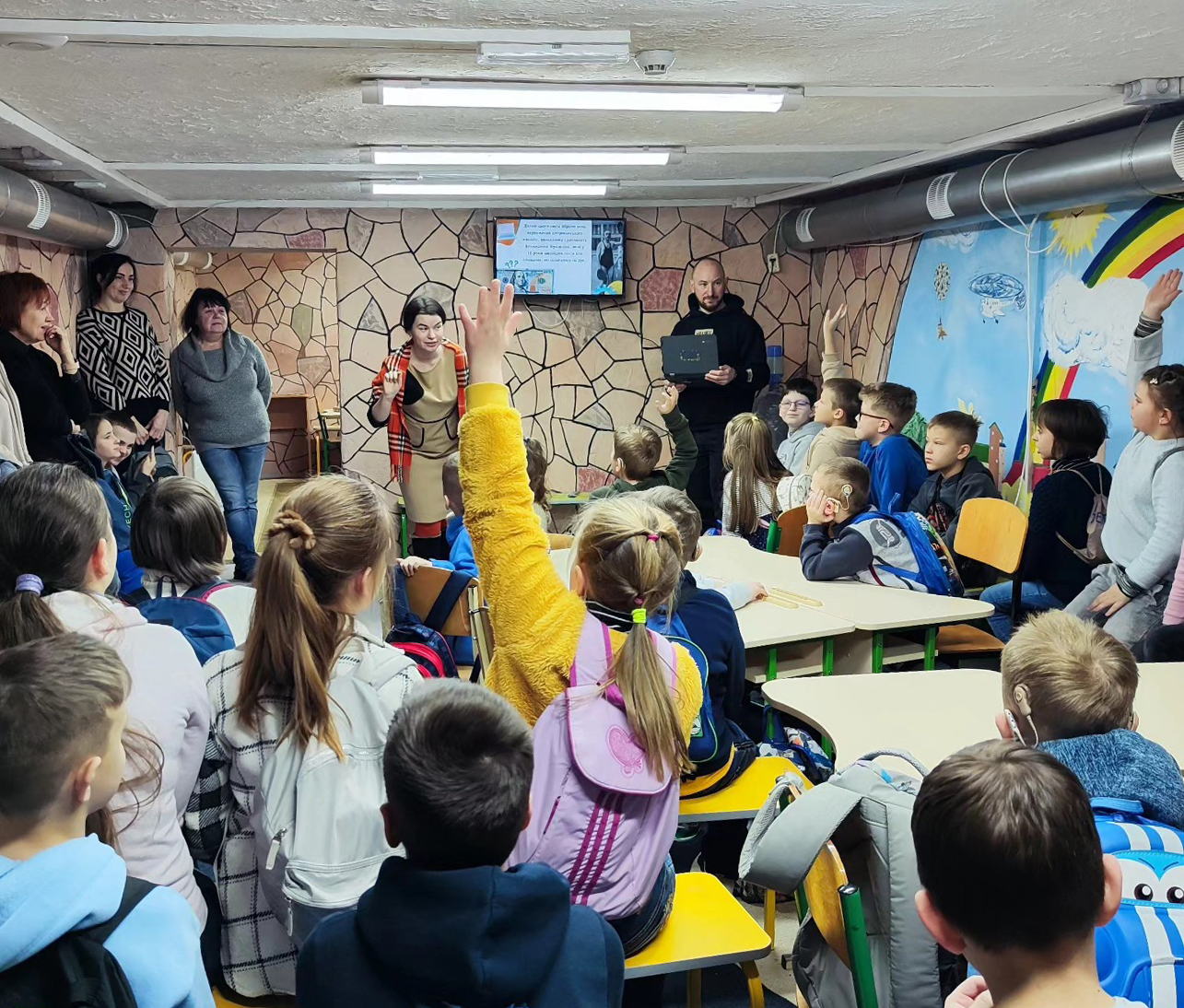
Engineering week-2024 in the shelter, educational, and rehabilitation center Zoryanyi Dnipro.
Ukrainian children need engineering knowledge not only in the hypothetical future — they are using it now. When, together with adults, they set up school shelters, figure out how to stock up on water or heat it during power outages, and help rebuild what was destroyed.
Taking into account all the challenges that Ukrainians face in the conditions of martial law, this year Engineering Week focused on several topics:
- Building materials for quick solutions — cardboard furniture manufacturing technologies that designers and architects around the world have been using since the 1960s. Students can test several solutions to equip their own school shelters.
- The concept of circular construction and recycling of construction materials — foreign and Ukrainian experience of construction and reconstruction. Teachers receive methodical materials and can discuss them with students in class.
- Alternative ways of collecting and purifying water are relevant practices for both military and peaceful life. Here, students try to build their own model of the raincatcher.
All these tasks and approaches show children that engineering and making are not something unattainable, difficult, and "adult." By reproducing something according to a model, children can develop something of their own, even if they did not plan it. It develops engineering thinking, creativity, and, to some extent — self-reliance. It didn't turn out as shown in the picture — no problem, you can "twist it" in your way. The main thing is acquiring skills, getting to know the material, discussing, and finding a solution that will satisfy and bring benefits — real or just fun.
By the way, teaching independence and self-reliance is one of the key tasks of Engineering Week. At Pro.Pro.Lab they are considered necessary skills for the development of creativity in children.
Anyone can be an engineer
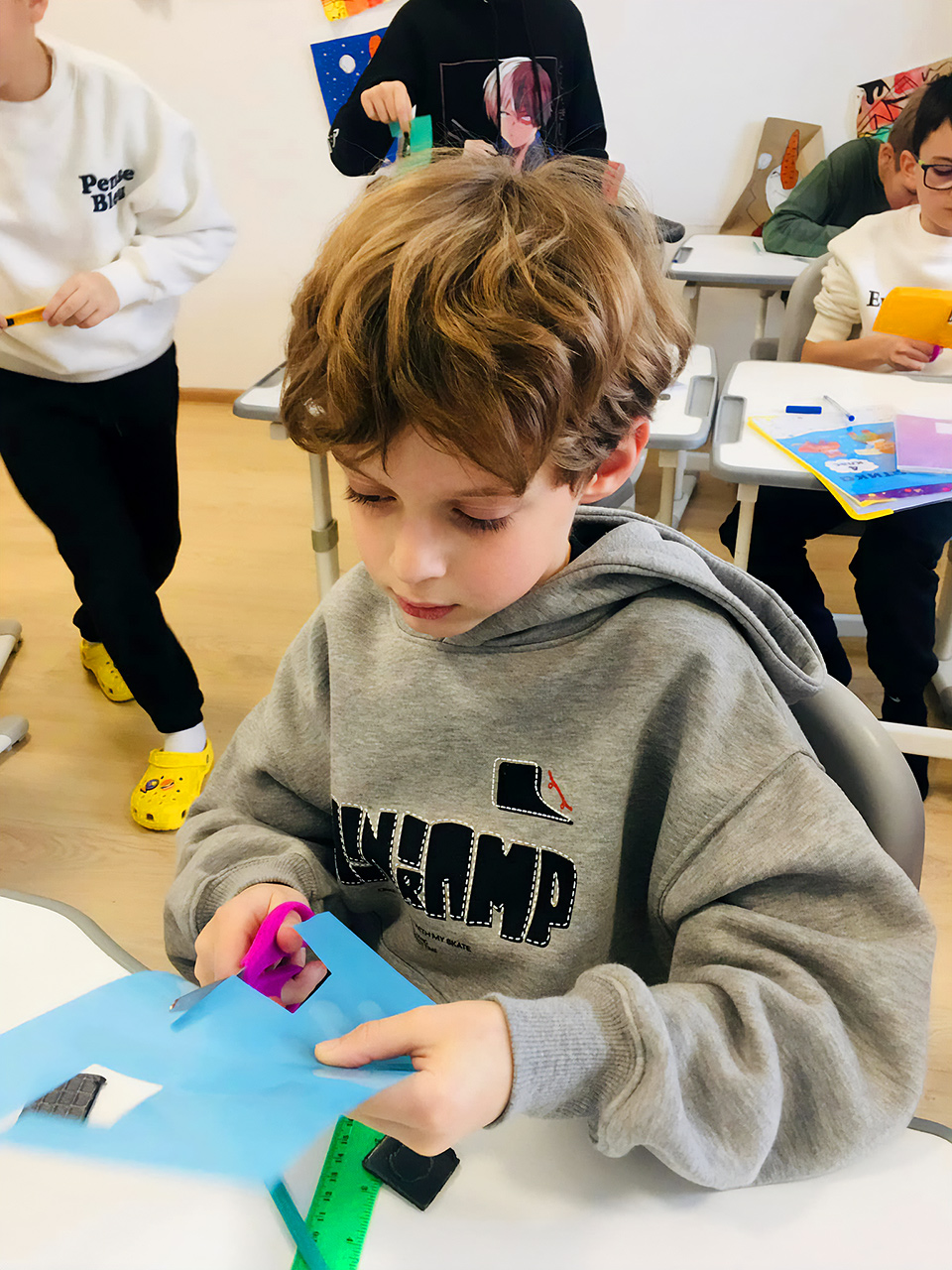
Most Engineering Week tasks do not require special skills, complex equipment, or expensive components.
Another important message that Engineering Week brings to children and teachers is that engineering and technology can and should be accessible to everyone.
What sets Engineering Week apart from other educational STEM programs is accessibility. It can be conducted by any school in the city or village if desired. The schools do not need to involve experts, and methodical materials are designed in such a way that teachers themselves become experts. Participation requires only super-cheap supplies — most of which students and teachers can find at home or school — paper cups, plastic bottles, lids, sticks for stirring sugar, straws, stationery erasers, and other basic things. The program contains tasks that can be interesting and suitable for almost all categories of students, including children with special educational needs. Participating in STEM projects stimulates brain development and creativity, which is important for all children, and helps socialize some students and develop empathy skills for others — it teaches them to work together and make connections. For many children with psychophysical development disorders and disabilities, this can become a real chance to build a successful career in the STEM field in the future.
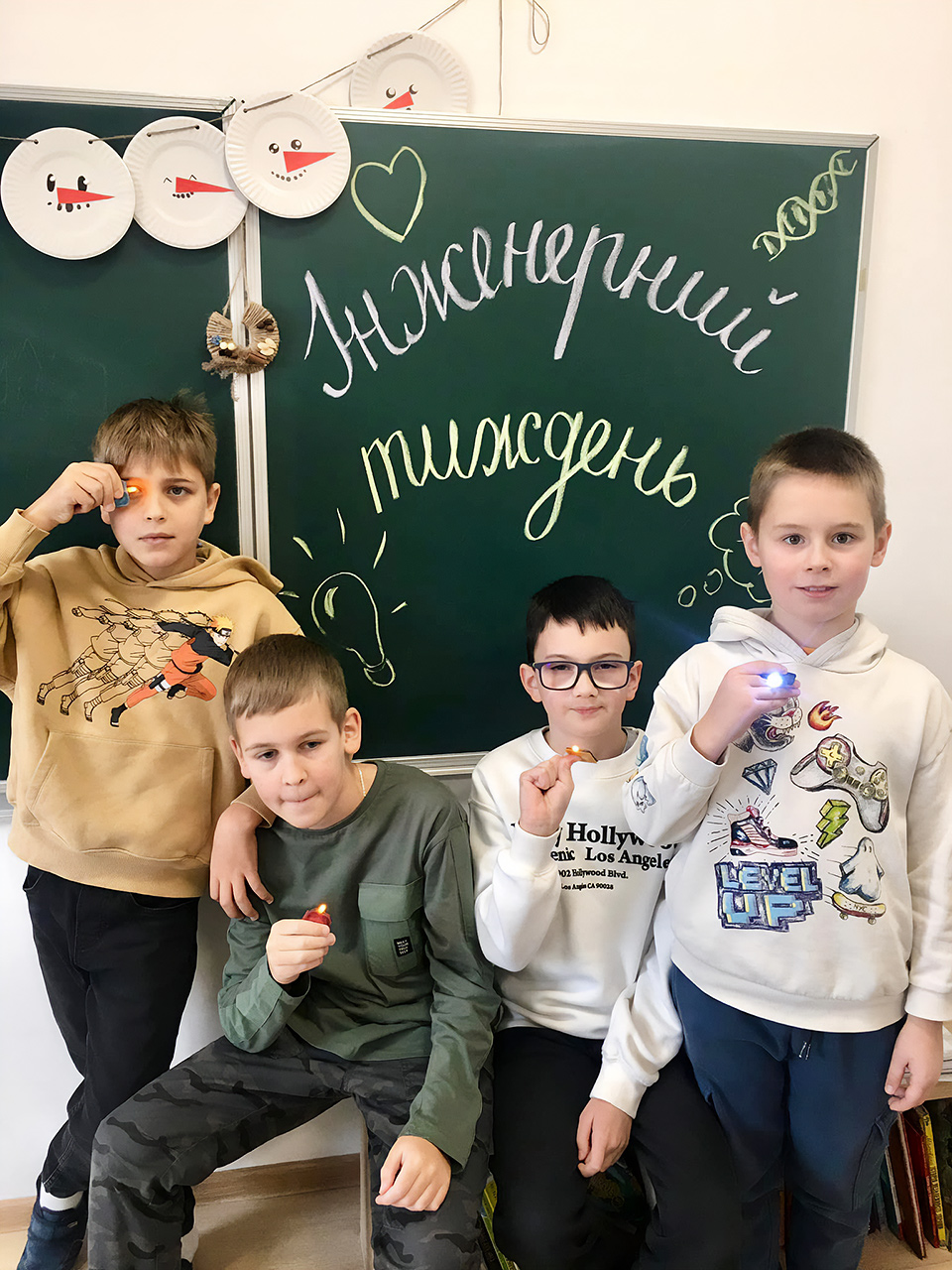
Participants of Engineering Week-2024 with their works. Photo: private kindergarten and school Unicum, Uzhhorod.
The engineering tasks for the program were designed specifically to suit students with special education needs. For example, all tasks have a practical nature, clear conditions, and expectations regarding the result, and most such students find this easier than working with abstract concepts.
In addition, the task takes into account the following features:
- Constant change of work format — especially when working in a team, students can choose or alternate the most comfortable work formats.
- Shorter class time — some tasks may take longer to complete than the lesson lasts, but because the work is divided into stages, the breaks between them allow students to realize what was done in the previous stage and what needs to be done in the next.
- Working in small groups — a team consisting of 4 to 6 students makes it easier to establish contact with each other. It is essential that students with special educational needs do not perform tasks separately from the class with a teacher or assistant but are part of such mini-groups.
- No pressure — mistakes and failures are an integral part of finding a better solution. Explaining this to students in advance and controlling their perception of errors in the process is essential.
"Children with special educational needs are, first of all, children. Their interest is no different from that of other children. Another thing is that they have more barriers on the way, the most significant being stereotypes," says Olena Shulha.
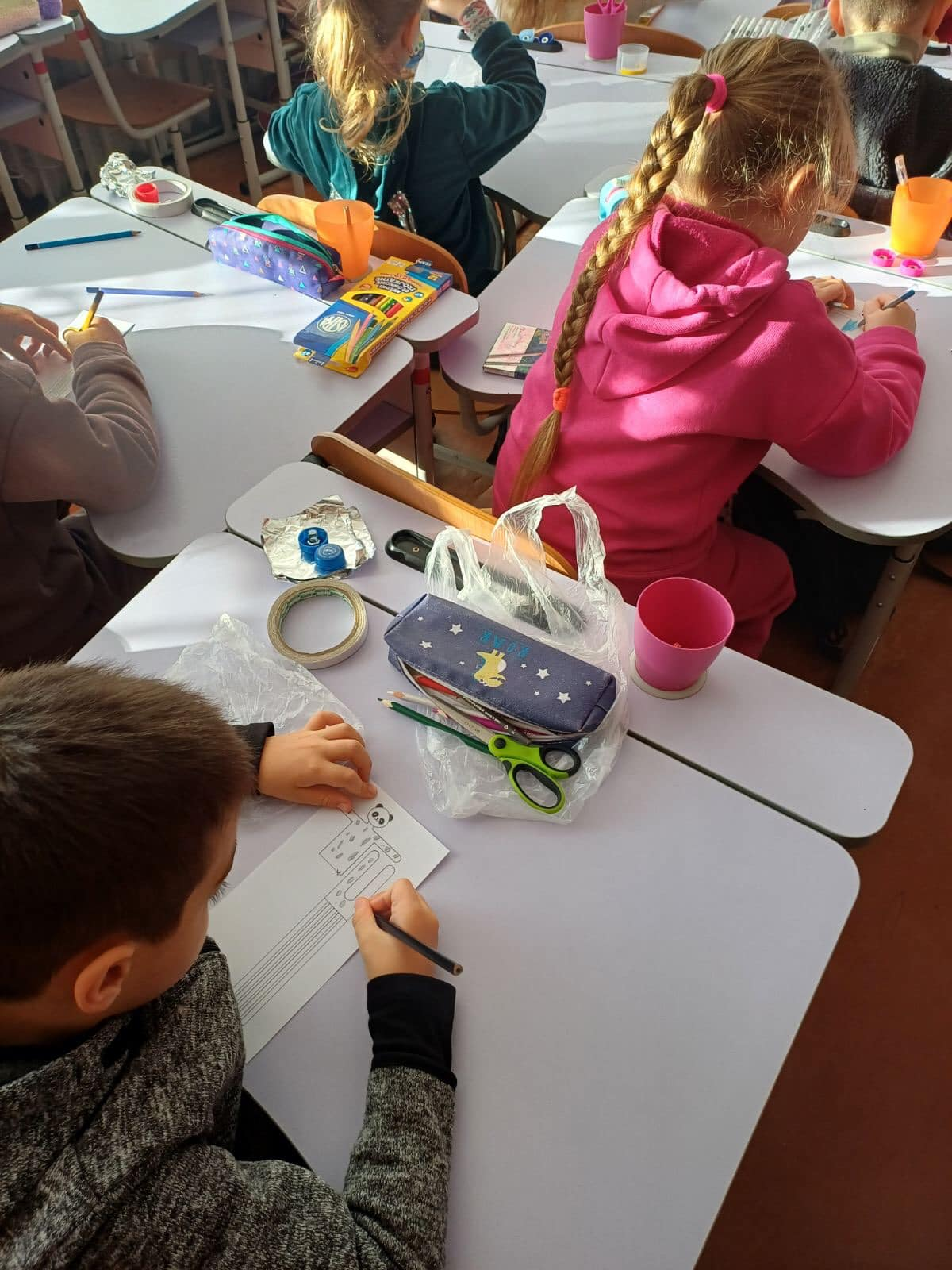
Children make a moving toy from paper. Vinnytsia Lyceum No. 29
Teachers help children at every stage. They ensure equality between all students. Also, they always focus on the goal. The main thing is not to complete every task 100% right now but to do as much as possible.
Not all children will become engineers in the future, but everyone will learn how to improve their daily lives at the household level.
Does it really work?
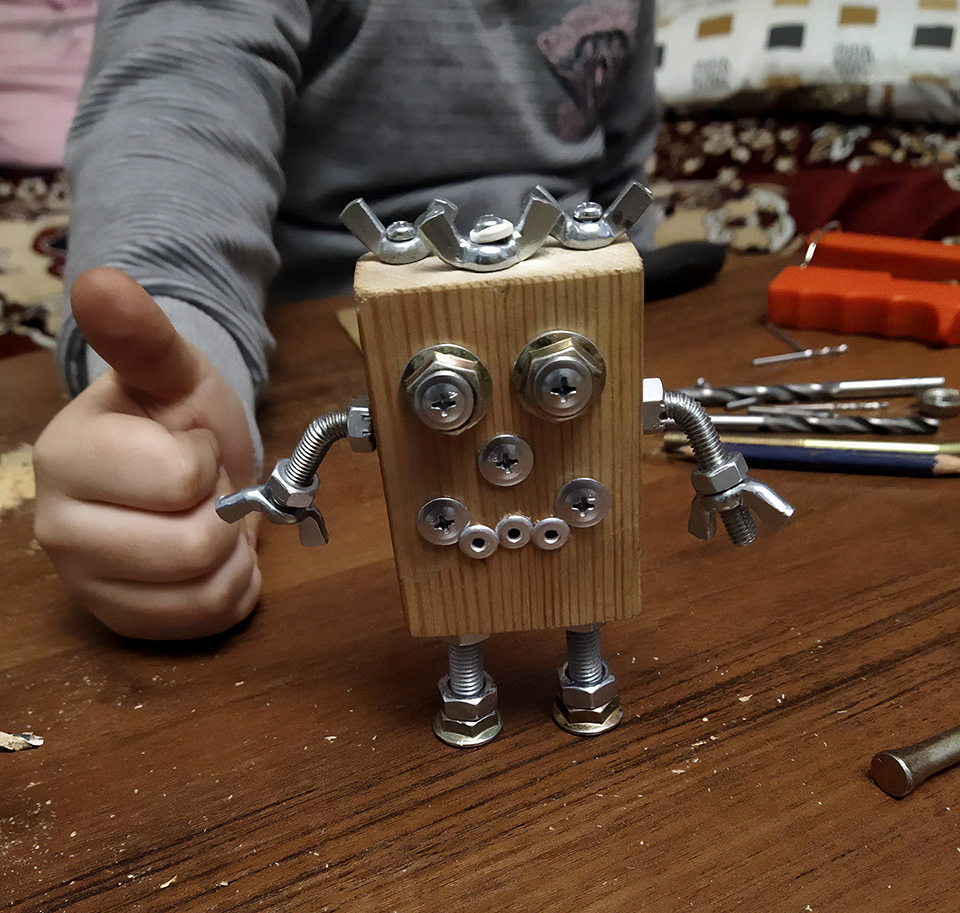
A work done by a schoolboy. Engineering week-2024.
During the last Engineering Week, Pro.Pro.Lab conducted a survey, and it turned out that 56.9% of teachers saw that students with special educational needs could do things not expected of them. This year, the following fact is indicative: when filling out the application, 63% of teachers noted that their schools have students with special education needs, and they plan to involve them in working on STEM projects.
Although this year's Engineering Week has not yet ended, the project is already receiving teacher feedback. They all say that the students with special education needs were active, diligent, and, most importantly, interested in the tasks.
Nataliia Kudryl, a primary school teacher who participated in this year's project, notes: "Once again, we were convinced that children with special education needs work well in a team, and their classmates listen to their opinions. Such cooperation is beneficial for all children, as it teaches a tolerant attitude towards the environment, endurance, and support."
Hura Nataliia, also a primary school teacher at Bakhmut Primary School No. 10, shared that she saw real interest in the schoolchildren and the desire of the students with special education needs to work on tasks together with everyone.
Even more useful solution!
Assume competence
The advice given to teachers by the creators of Engineering Week can be relevant not only during one week a year. According to Shulha, the most important advice is to assume competence.
"Believe me, students with special education needs can do more than what is usually expected of them. The expectancy effect leads to a decrease in performance during learning, a decrease in interest, and a decrease in effort to achieve counterstereotypic skills. Most research on the expectancy effect focuses on racial and ethnic minorities or women in STEM fields, but it is logical to assume the same harmful effect on students with special educational needs," says Shulha.
In addition to believing in children, Engineering Week has several more universal tips for conducting practical classes with the participation of children with special needs:
- Build on students' strengths and interests. Students will be more interested in completing tasks if they feel they have the appropriate knowledge and skills. But don't forget that, as with students without special educational needs, you must raise the bar occasionally to ensure that skills develop and improve.
- Help students achieve a state of "flow." To do this, clearly define the goal of the task in general and each stage. Set the level at which your students with special educational needs should complete the tasks. Provide accurate and prompt feedback so students can adjust their actions as needed.
- Use assistive technology as needed. This can make absorbing information and understanding tasks easier, especially for visually or hearing-impaired students. Provide materials in digital format, duplicate information with information cards, print assignments on yellow sheets, and more. Information boards for people with visual impairments are made yellow because this color is bright enough. The same principle is applied here: when there are many things on the table, it's easier for students to find the worksheet if it attracts attention.
- Pay attention to safety. If the children's impairments allow them to work with such tools, entrust them with this work, directing and providing insurance. This will contribute to their greater independence and confidence in their capabilities. If not, organize the process so that other students perform these operations and students with special educational needs do not have accidental access to them. In any case, be close to the students when working with the tools.
- Show examples of hard work and how team members can communicate and collaborate. This is important not only for those students who need help in acquiring and developing social skills but also for everyone else to develop soft skills and empathy.
Engineering Week is held together with Maker Hub as part of the TOLOCAR program. TOLOCAR is funded by the German Federal Government Bundesministerium für wirtschaftliche Zusammenarbeit und Entwicklung (BMZ) and implemented by the German Institute HIWW with the support of GIZ Ukraine.
Newsletter
Digest of the most interesting news: just about the main thing







